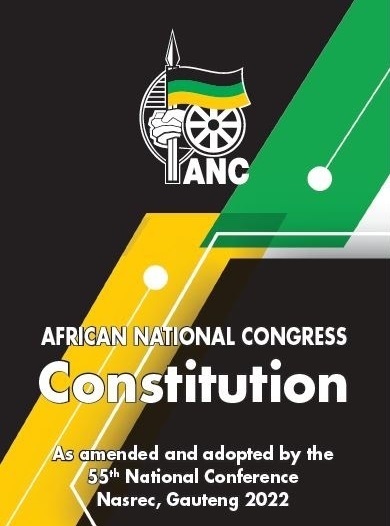Programme Director:
Members of the Executive Council
National Government Ministers
Mayors of our Municipalities
DG and HODs
CEOs of our Public Entities
Municipal Managers
Good morning to you all. It is my honour to address you today in our ordinary Provincial Intergovernmental Forum. In line with the EXCO decision to rotate the hosting of our meetings in all Districts as we wrap up the work of the sixth administration, we are hosted by the OR Tambo District today.
Colleagues, this platform is the highest decision-making platform on IGR related matters in the province. Gathered here are leaders of government at various spheres and institutions. I am therefore expecting solution driven discussions from all of us, not complaints, because the bark of leadership stops with us. Remember national and provincial government are only left with a mere 9 months before the end of their term. So, our PIF cannot be dominated by lamenting, time for that ended a few years ago. This year is themed the year of decisive action to advance the interests of the people, we must demonstrate that spirit in this meeting.
Through this PIF we strive to ensure service delivery, policy implementation, and progress monitoring across all levels of government. Our gathering today unites all Members of the Executive Council (MECs), Heads of Provincial and National Departments in our province, Executive Mayors, City and Municipal Managers, Provincial Chairpersons of the House of Traditional Leaders, SALGA, and CEOs of Public Entities in the Province.
Our meeting is graced today by the attendance of Minister of Water and Sanitation, Mr Senzo Mchunu and the Minister of Electricity, Mr Kgosientsho Ramokgopa. They will make presentations in line with the portfolios they lead which we have an interest on as the Eastern Cape Province.
Together, we represent the three spheres of government – national, provincial and district municipalities – working as one cohesive entity under the Intergovernmental Relations Framework Act (IGRFA). Our collective aim is to foster growth, prosperity, and social equity in our districts, metros, and the broader Eastern Cape.
Guided by the District Development Model (DDM) One District Plan, we are unwavering in pursuing four key strategic intervention areas to support a portfolio of projects that are jointly planned, implemented, monitored, and evaluated:
Creating opportunities for our youth, unemployed and marginalized communities.
Strengthening integrated service delivery in key areas such as water, sanitation, waste management, primary health care, basic education, and social services.
Expanding access to inclusive economic development for local businesses, particularly small and medium financial enterprises.
Investing in social and economic infrastructure to promote local industries and social infrastructure.
We acknowledge the impact of fragile municipal finance management, which is hampering our efforts to deliver effective public services. Yet, we must also turn our attention to addressing the financial struggles of our municipalities, particularly non-viable designated municipalities that carry high levels of debt. To this end, we are striving to enhance resource mobilization and provide necessary technical support. We are dedicated to addressing the issues of poor financial performance and weak infrastructure in our municipalities. Rooting out corruption, improving revenue collection, and implementing robust accounting systems are key objectives in this fight. Our efforts must continue unabated until every municipality has the qualified accounting officers, engineers, and technology they need for accurate and verifiable billing systems.
As we face the realities of high unemployment, poverty, and hunger in our communities, it is critical that we ensure all allocated funds are used effectively to address our infrastructure backlog. We also recognize the necessity of revising our disaster management strategies, particularly in light of lessons learned from the COVID-19 pandemic.
The lessons we have learned from the Covid-19 pandemic can help us to better manage our response to future emergencies. Our strategy for disaster management must be robust, agile, and sustainable, particularly in rural and informal settlements that are often the most vulnerable. I must say our response to disasters leaves a lot to be desired and it is us in this meeting that must get our act together.
As we move forward, I urge everyone present to remember that the success of our mission lies in our unity, determination, and commitment to the people we serve. Together, we can overcome the hurdles that stand in our way. One such hurdle is the slow pace of infrastructure spending, an issue that exacerbates high levels of unemployment, poverty, and hunger among our communities. We must find ways to make sure funds earmarked for infrastructure are not returned to the national fiscus unspent. Instead, we must endeavour to utilise every rand in alleviating our infrastructure backlog, including removing barriers to accessing and managing conditional grants. It is becoming apparent that most of our challenges are not caused by lack of financial resources, but by our inability to plan properly and execute our plans hence some of our departments and municipalities underspend their allocated budgets for infrastructure. Later this afternoon I will be convening the Provincial Infrastructure Council to zoom into the subject matter of our performance on infrastructure implementation and spending.
Colleagues, despite the challenges that we experienced during this term, such as Covid-19, and a sluggish global economic climate, our provincial economy has been resilient. Through the implementation of our Economic Recovery Plan, we managed to reduce unemployment rate in our province from 47.9 % in 2020 to 40.0% by the end of the first quarter of 2023. That should motivate all of us to redouble our efforts on the priority of transforming our economy to create jobs. Clearly had we not had covid-19 and the conflicts such as the one between Ukraine and Russia our unemployment rate would have dipped under 40.0% by now.
Talking about Russia, the upcoming BRICS summit is highly anticipated in our province because BRICS countries have a trade footprint in our province. Most people do not understand why the excitement about BRICS?
In BRICS countries we are talking about a block that easily accounts for approximately 42% of the world’s population, around 23% of global GDP, and approximately 16% of world trade. It is a block that has a potential to change the world economy as we know particularly with interests from countries such as the UAE, Saudi Arabia and Iran wanting to join BRICS. As a province we continue to participate in build up programmes to the BRICS summit as part of raising awareness about the upcoming summit and driving a positive narrative around BRICS in light of the negative focus created by the International Criminal Court. Many of the challenges we have in our country could be solved by our partnership with BRICS countries.
The energy crisis is one such challenge that we need BRICS countries to help us resolve. We support the National Energy Action Plan and initiatives to strengthen and expand our electricity generation capacity, including the participation of the private sector and independent power producers. We do see improvements in the reduction of loadshedding and we applaud the Minister of Electricity and his team for the work they are doing because naysayers were predicting a total blackout during this winter season in our country. As the Eastern Cape we believe we are better positioned to assist the nation transition towards clean energy. All we need is investments by Eskom to strengthen our grid, we need investments in battery storage to store electricity generated in our wind and solar farms.
Today we will also receive a presentation from TNPA, as they are a strategic SOE for economic growth. For a number of years, we have highlighted their investment strike in the province, but they have come around. We are looking forward to hearing progress on the projects they are implementing in our province. I am particularly interested to know what their plans for the transportation of manganese by rail are to reduce the number of Trucks from Northen Cape to the Port of Ngqura.
Our progress towards fulfilling our electoral mandate is not without its challenges. Our communities are grappling with high crime rates, particularly gender-based crime, and hate crimes against the LGBTQ+ community. This requires us to bolster our efforts towards crime prevention and the promotion of social cohesion. We will hear today latest provincial crime statistics to have a clear picture of what we are faced with.
In conclusion, the challenges we face are substantial, but they are not insurmountable. Let us remember that we are here to serve the people of the Eastern Cape. Let us show them that their trust in us is well placed. Let us work together, across all spheres of government, to deliver a better, brighter, and more prosperous future for all.
The meeting is open.





